Day 1
| Keynote: Indigenous Environmental Justice and Sustainability Science |
|---|
I will draw upon my own professional, research and personal experience in this area as an educator and practitioner advance Indigenous knowledge systems in achieving environmental justice. As an Anishinaabe scholar, it has been an important goal of my professional life to seek models for how different knowledge systems can come together to address mutual environmental challenges.
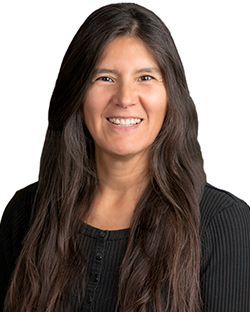 Speaker: Deborah McGregor
Speaker: Deborah McGregor
Anishinabe, Associate Professor and Canada Research Chair: Indigenous Environmental Justice. Osgoode Hall Law School and Faculty of Environmental Studies, York University. Professor McGregor’s research has focused on Indigenous knowledge systems and their various applications in diverse contexts including environmental and water governance, environmental justice, health and environment, climate change and Indigenous legal traditions. Professor McGregor remains actively involved in a variety of Indigenous communities, serving as an advisor and continuing to engage in community-based research and initiatives. Professor McGregor has been at the forefront of Indigenous environmental justice and Indigenous research theory and practice. Her work has been shared through the IEJ project website https://iejproject.info.yorku.ca/ and UKRI International Collaboration on Indigenous research https://www.indigenous.ncrm.ac.uk/.
| Session 1: Introduction to Science Communication |
|---|
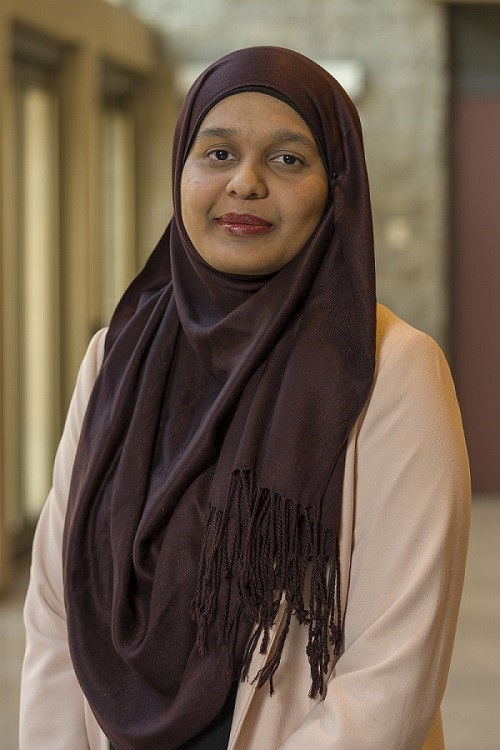 Speaker: Farah Qaiser
Speaker: Farah Qaiser
Farah Qaiser is a genomics researcher by training, now taking a detour into the world of policy. Currently, Farah is the Director of Research and Policy at Evidence for Democracy. Previously, she worked as a researcher at the University Health Network’s Epilepsy Genetics Clinic, where she used genome sequencing to better understand epilepsies. Farah holds a Master of Science in Molecular Genetics and a Bachelor of Science from the University of Toronto. Farah co-founded the Toronto Science Policy Network, has written about science for media outlets, and continues to organize Wikipedia Edit-A-Thons to create pages about under-represented scientists. Farah serves on the Canada Chief Science Advisor’s Youth Council, 500 Women Scientists’ Leadership Team, and Let’s Talk Science’s Board of Directors.
| Workshop 1: Science as a Story |
|---|
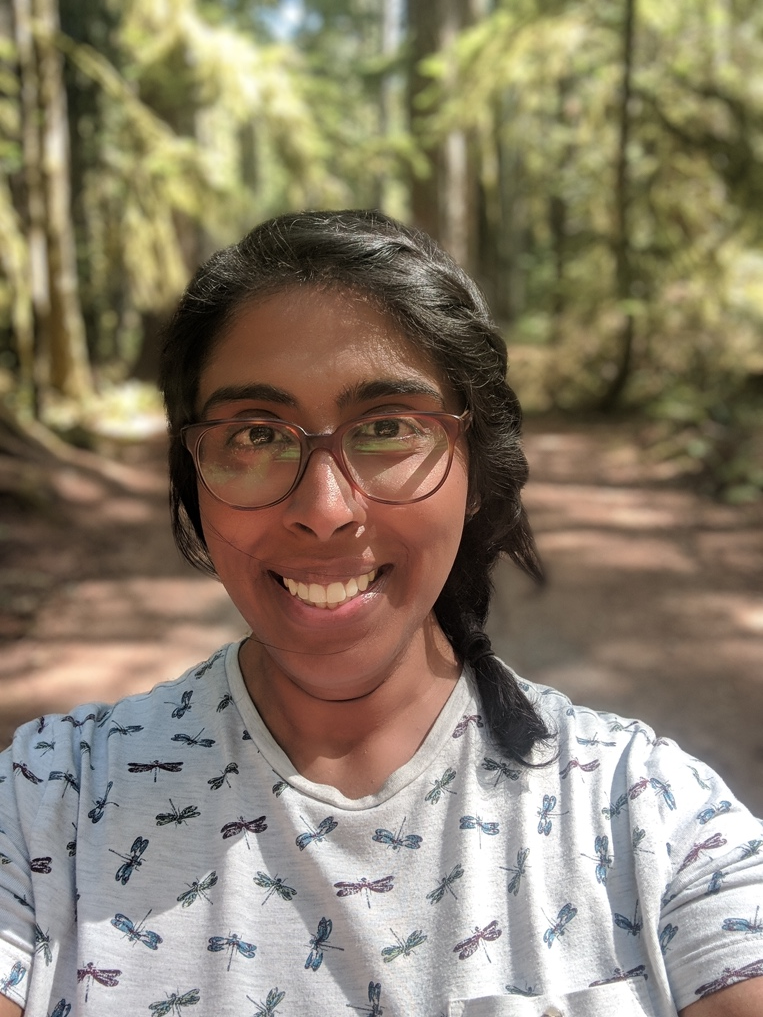 Speaker: Abeer Siddiqui
Speaker: Abeer Siddiqui
Abeer Siddiqui is a Learning Support Librarian at McMaster University and Adjunct Professor in the School of Interdisciplinary Science. She advocates for effective science communication through storytelling as a way of building trust and creating conversations within our communities about topics science and health. As an instructor, .Abeer has contributed to over a dozen courses with lectures on Science Literacy, which refers to the necessary skills, beyond subject knowledge, that students need to succeed as scientists. This includes information literacy and scientific communication. Over the past 3.5 years, she has strategically embedded science literacy instruction across second, third, and fourth year courses so that students are able to practice and master these skills throughout various programs in the Faculty of Science. Her work in Science Literacy seeks to embed community-engaged practices including bringing community into the classroom and exploring science communication within diverse communities including young kids, LGBTQ+, and both rural and urban communities. Her goal is to use storytelling to express our understanding of sometimes complex or controversial scientific concepts.
| Workshop 2: Introduction to Podcasting |
|---|
 Speaker: Dr. Asma Bashir
Speaker: Dr. Asma Bashir
Dr. Asma Bashir (she/her) completed her PhD in Neuroscience at the University of British Columbia in Vancouver, after having completed her BA in Psychology at Boston University. As founder and host of Her Royal Science–a podcast created to feature individuals from minoritised groups in STEM–she creates content delving into the most cutting-edge STEM research in an accessible manner, with the simultaneous goal of highlighting the individuals behind the research.
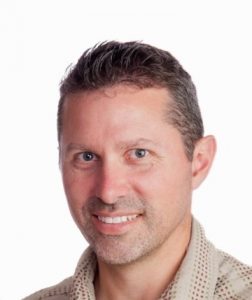 Speaker: Rich McCue
Speaker: Rich McCue
Rich McCue was born and raised in Victoria, BC. He manages the University of Victoria Libraries Digital Scholarship Commons (DSC), and is a sessional instructor in the Faculty of Education. The DSC helps the UVic community explore and express their ideas in ways other than text and tell their research stories in interesting and engaging ways. The DSC does this by making available digital tools like 3D printers, electronics kits, Virtual Reality equipment, data analysis & visualization software, and teaches people how to use those tools. Rich’s research interests include flipped learning, makerspaces, informal credentialing, multimedia learning, and open learning. Rich is part of the UVic Speakers Bureau and has presented at a number of academic technology and makerspace conferences across North America over the years. In his spare time, he reads, coaches & plays soccer, sails & bikes. To learn more about him, visit his blog at http://richmccue.com.
| Workshop 3: Effective Presentation Skills |
|---|
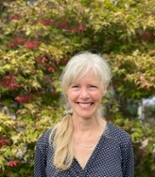 Speaker: Nancy Ami
Speaker: Nancy Ami
Nancy Ami has worked in private and public post-secondary institutions for over twenty-five years. She currently manages the Centre for Academic Communication, where she assists graduate students with their academic writing and presentations.
 Speaker: Faria Athar
Speaker: Faria Athar
Faria Athar is a PhD student at the Department of Biology at UVic and the focus of her research is on understanding the interplay between nutrition, reproductive health, and longevity. Faria cares deeply about expanding opportunities for scientific research in marginalized communities and improving scientific outreach and communication in our society. At UVic, Faria is a tutor at the Centre for Academic Communication where she helps students with their academic writing. Before joining UVic, she worked at the Institute of Healthy Aging, at University College London, UK from where she also completed her Masters in Biosciences.
Day 2
| Session 2: My Journey Into Science Communication |
|---|
 Speaker: Dalmeet Singh Chawla
Speaker: Dalmeet Singh Chawla
Dalmeet Singh Chawla is a freelance award-winning science journalist based in London, UK. He has a Bachelor’s degree in Biochemistry from University College London, a Science Communication MSc degree from Imperial College London, and a passion for neat storytelling. You can access his portfolio here: http://www.dalmeets.com
| Session 3: The angel complex in academia |
|---|
 Speaker: Dr. Ninan Abraham
Speaker: Dr. Ninan Abraham
Dr. Ninan Abraham is Associate Dean, Equity and Diversity in the UBC Faculty of Science and a Professor in the Department of Microbiology and Immunology and the Department of Zoology. His research focuses on the regulatory points in immune cell control with specific interest in airway immunity to pathogens and lung cancer. As Associate Dean, he has responsibility for equity, diversity and inclusion initiatives, including the training of faculty search committees, faculty data analysis, reporting on EDI progress for the Faculty of Science, and liaising with the UBC EDI leaders. Dr. Abraham is also the Director of EDI and Indigeneity on the national network for COVID variant response, CoVaRR-Net. He has been interviewed by the Globe and Mail and advised CIHR, NSERC and NRC policymakers on best practices.
Dr. Abraham originally hails from Malaysia and Singapore and came to Canada for his education over 30 years ago. His academic path took him from Halifax, to Montreal, to Ottawa for his PhD, then the Gladstone Institutes at University of California-San Francisco as a Damon Runyon scholar. He was recruited to UBC in 2003 and is mindful of being a settler on Musqueam, Squamish, and Tsleil Waututh lands.You can access his portfolio here: https://www.abrahamlabubc.ca/
| Panel Discussion: Marginalization, Bias, Power, and Privilege in STEM |
|---|
The discussion panelists Dr. Mina Hoorfar, Ella Chan, Dr. Krishana Sankar, and Dr. Lawrence Goodridge will talk about their unique experiences both personal and professional to discuss diverse ways to redress inequities in paths such as science communication, STEM education, and research. We welcome you to listen to this powerful dialogue with leaders and join this critical discussion on countering under-representation in STEM so that the representation of marginalized individuals is intentional and not tokenized in research and education.
 Panelist: Ella Chan
Panelist: Ella Chan
Ella Chan is in her first year at UBC Medicine in Vancouver, BC. She first became interested in medicine and science because of her brother’s kidney condition and has since been looking for opportunities to get involved in the knowledge translation of science into more accessible media. She started a YouTube channel, Sci Files, when she was twelve, which is dedicated to encouraging all to pursue degrees in STEAM fields. Ella is a recipient of the UBC Presidential Scholars Award and the 2018 Ingenium-NSERC STEAM Horizon Award. She is also a member of the UNESCO Youth Advisory Group in the Natural Sciences and works as Genome BC’s Digital Media Outreach Specialist.
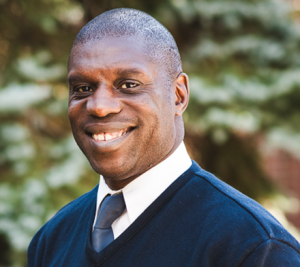 Panelist: Dr. Lawrence Goodridge
Panelist: Dr. Lawrence Goodridge
After completing a B.Sc. Honours degree in Microbiology at the University of Guelph, Lawrence completed both his M.Sc. and Ph.D. degrees in Food Science with an emphasis on microbial detection of foodborne pathogens, also at Guelph, before leaving for a Postdoctoral Fellowship to continue his training in microbial food safety in the laboratory of Dr. Michael Doyle in the Center for Food Safety at the University of Georgia. Prior to returning to Guelph, Lawrence has held faculty positions at the University of Wyoming and Colorado State University. More recently, he was the Ian and Jayne Munro Chair in Food Safety in the Food Science Department at McGill University. In January, 2019, Lawrence joined the Department of Food Science as Director of the Canadian Research Institute for Food Safety, where he holds the Leung Family Professorship in Food Safety. Dr. Goodridge conducts research related to control and detection of pathogenic microorganisms including bacteria, viruses and parasites. Dr. Goodridge has published more than 100 peer reviewed journal articles and book chapters, and has been awarded more than $30 million in research funding from US, Canadian and international funding sources.
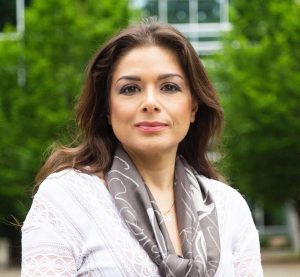 Panelist: Dr. Mina Hoorfar
Panelist: Dr. Mina Hoorfar
Dr. Mina Hoorfar is an academic leader and engineer known for her inspired teaching, highly collaborative approach to research, and strong advocacy of equity, diversity and inclusion. In July 2021, Dr. Hoorfar was appointed Dean of the Faculty of Engineering and Computer Science at the University of Victoria, where she leads about 3,600 students, 100 faculty and 60 staff. She joined UVic after 15 years as a professor in the School of Engineering at the University of British Columbia’s Okanagan campus – which she led during her final six years there.
Dr. Hoorfar earned an undergraduate degree in mechanical engineering at the University of Tehran, moving to Canada in 1998 to pursue her Master’s and PhD at the University of Toronto. Since then, she has collaborated with research labs around the world, including ones at Harvard, MIT and Stanford. Dr. Hoorfar is recognized as a top engineering researcher in advanced the field of thermo-fluidics, contributing to high-impact, real-life solutions in areas such as energy, health and the environment. She has gained recognition for her work and teaching through numerous awards and, in 2020, became president of the Canadian Society for Mechanical Engineering (CSME).
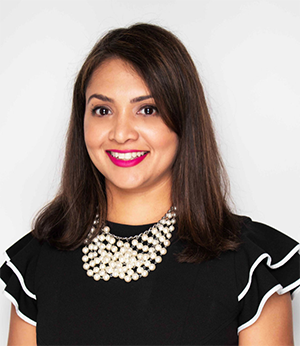 Panelist: Dr. Krishana Sankar
Panelist: Dr. Krishana Sankar
Dr. Krishana Sankar is an award winning & published researcher who completed her PhD at the University of Toronto in the Faculty of Medicine with expertise in Cellular & Molecular Biology. She is also a science communicator having presented at over 100 national and international events. Dr. Sankar has been dispelling misconceptions around healthcare issues on social media and through community presentations for several years. Since the pandemic, she has been answering questions and sharing scientifically accurate information about COVID-19 and the vaccines with communities in Canada and Guyana.
Dr. Sankar is currently the Science Advisor for ScienceUpFirst, a national anti-misinformation campaign in Canada that aims to combat misinformation around COVID-19 and she also leads a Science Communication project for COVID-19 resources Canada and volunteers as a Vaccine Safety Educator. She has shared her expertise on national & international news outlets in Canada and Guyana and has been quoted in publications like Reuters, the Huffington Post & Global Citizen.
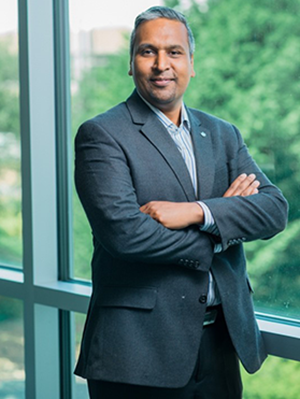 Moderator: Dr. Rishi Gupta
Moderator: Dr. Rishi Gupta
Dr. Rishi Gupta is a Professor in the Department of Civil Engineering at the University of Victoria (UVic). He leads the Facility for Innovative Materials and Infrastructure Monitoring (FIMIM) at UVic. He received both a masters and a PhD in Civil Engineering from UBC. His areas of interest include development of sustainable construction technologies, structural health monitoring, and non-destructive evaluation. He has more than 20 years of combined academic and industry experience.
Rishi is a Fellow of Engineers Canada, recipient of UVic’s REACH award and recipient of the teaching excellence award from EGBC. Rishi is also the immediate past Chair of the international affairs committee of the Canadian Society of Civil Engineering.